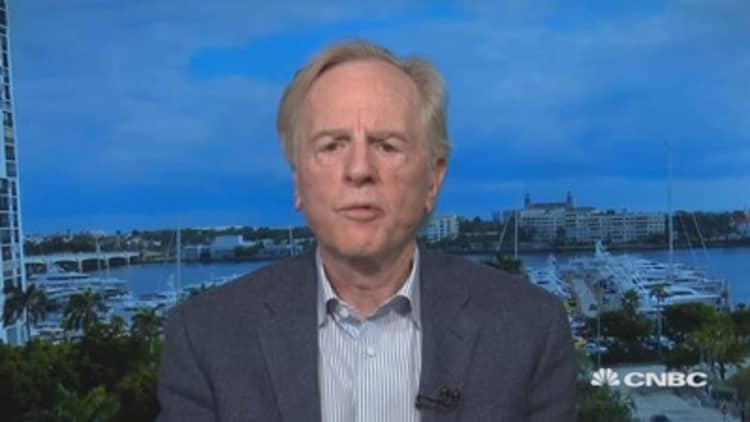
The holy grail in health care now is to harness patient data to improve patient care while also cutting costs. When it comes to tackling pharmacy benefits, the former CEO of Apple says real change has to go beyond just cutting fees.
"To make health care sustainable in the future, the only way to do that is to significantly reduce the cost of caring for chronic care patients," said former Apple chief John Sculley. He now serves as chairman of privately held start-up RxAdvance, which manages pharmacy benefits for insurers, employers and state Medicaid programs.
This week health insurer Centene took a stake in RxAdvance, for an undisclosed sum. The two will work more closely to coordinate medical and prescription benefits for Centene's Medicaid and Obamacare members with chronic conditions, and share in the savings.
"RxAdvance's transparency, disruptive technology, and unique approach to partnership will help us further improve quality health outcomes for our members and other customers," said Centene CEO Michael Neidorff in the company's announcement of the deal.
The move follows two blockbuster mergers — CVS Health's $69 billion deal to acquire health insurer Aetna and Cigna's $54 billion for pharmacy benefits firm Express Scripts — that aim to generate savings by coordinating care, cutting out the middleman costs associated with pharmacy benefit managers (known as PBMs).
"The reality is that you can't take enough costs out of it to fundamentally change the cost parameters of the PBM market," said Sculley, noting that the nation's largest pharmacy benefit manager Express Scripts has more than 35,000 employees.
"What RxAdvance has built is the first cloud platform that literally goes in and hands off to technology things that have been done with thousands of people," by automating much of claims processing he said, allowing them to process prescriptions and manage benefits with a fraction of the staff.
"By the time we get to about $20 billion of (annual) revenue — which we think will be in the early 2020s — we'll only need a couple thousand people," he said.
Tech giant Amazon's potential entry into health care has also loomed as a factor in pharmacy supply chain efforts to become more consumer-friendly. Sculley, a veteran of Silicon Valley who has spent years working on health-care technology, says Amazon has a long road ahead.
"Amazon is fully technically able to do many things, and they may well come in to health care, but the reality is it's going to take several years and maybe more than that to learn how to do the things that are unique to the rules of health care. It's a regulated industry. It's highly complex," he said. "I suspect that if Amazon comes in they may well want to partner with companies that have already laid the foundations for how to do these things using cloud-computing."
For now, Amazon is on the hunt for an executive to lead its new joint venture with Berkshire Hathaway and J.P. Morgan to take aim at employer health costs and streamline employee benefits.
"Could we work Amazon, Berkshire and JP Morgan? I think we could bring a lot to the kind of issues that they're trying to solve," Sculley said.


